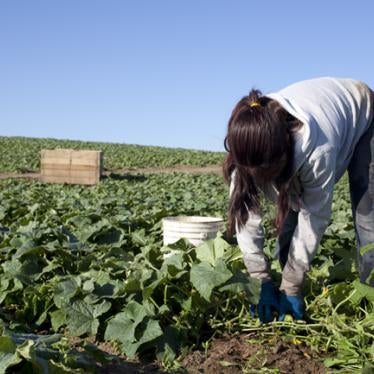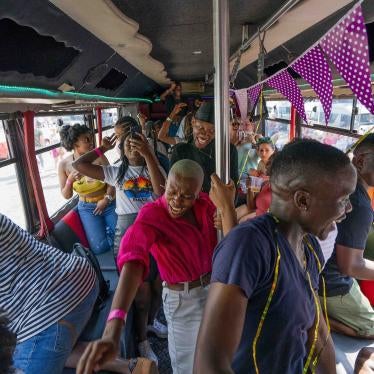Each year, when school lets out for the summer, children as young as 12 — and sometimes younger — start working long hours tending tobacco in Virginia and other big tobacco states. They absorb nicotine through their skin, get sprayed with pesticides and use sharp axes to hack down rows of tobacco taller than they are — all in the extreme heat and humidity common during the summer months in the South. The work makes many of them sick.
But a bill in the Virginia House of Delegates would bar hiring children to do dangerous work on the state’s tobacco farms. If passed, it would lead the way among tobacco states in protecting these children.
My colleagues and I interviewed 141 children under 18 who worked on U.S. tobacco farms in 2012 and 2013, including a few in Virginia. Two-thirds of the children reported nausea, vomiting, dizziness or headaches while they worked — all symptoms of acute nicotine poisoning, or green tobacco sickness. This happens when workers absorb nicotine through their skin, especially when the plants are wet.
“Theo,” a 16-year-old Virginia boy, told me how he felt while cutting down tobacco plants during the harvest: “I got sick to my stomach and a little dizzy, and I felt like I was going to throw up.”
Fourteen-year-old “Jacob” also worked on tobacco farms in Virginia. “I get a little bit queasy, and I get lightheaded and dizzy,” he said. “Sometimes I feel like I might pass out. It just feels like I want to fall over.”
Children are especially vulnerable to nicotine poisoning because of their size and stage of development. The long-term effects of nicotine absorption through the skin are unknown, but a recent report from the surgeon general suggests nicotine exposure during adolescence may have lasting consequences for brain development.
But under federal labor law, this is legal. Twelve-year-old children in the U.S. can be hired to work unlimited hours outside of school on tobacco farms. Under a decades-old loophole in the Fair Labor Standards Act, children can work in agriculture at younger ages, for longer hours, and in more hazardous conditions, than in any other sector. There are no federal provisions to restrict children from working with tobacco.
Federal action to end child labor in tobacco farming is desperately needed. But state lawmakers don’t have to wait on Washington to act. States have the authority to enact stronger child labor standards than federal law, and some already do.
HB 1906, the bill introduced this week by Del. Alfonso Lopez, D-Arlington, could make Virginia the first state to protect children from the hazards of tobacco farming.
In recent months, major players in the tobacco industry have adopted standards that offer child workers better protection than existing labor laws. Two associations of tobacco growers — which together represent about half of all U.S. growers — adopted policies to ban hiring children under 16 to work in tobacco farming. The two largest tobacco companies in the U.S. — including Virginia-based Altria Group, the maker of Marlboro and Virginia Slims — followed suit, and independently announced they will prohibit hiring children under 16 to work on farms that produce tobacco for them.
Taken together, most of the major buyers of U.S.-grown tobacco have adopted child labor standards more protective than U.S. law.
But without a stronger legal and regulatory framework, some children will inevitably be left out. The new company policies apply only to farms in their own supply chains, and most companies still permit 16- and 17-year-old children to do some of the most toxic jobs, like harvesting tobacco.
The Virginia law would ban hiring children under 18 to work in direct contact with tobacco plants or dried tobacco leaves. The bill offers a clear, protective standard. It’s easy for growers to follow, and does not apply to children working on their own families’ farms.
Virginia lawmakers should enact the bill to persuade policymakers in Washington and other states in the tobacco belt that they, too, should protect children from the dangers of working in tobacco fields.
Margaret Wurth is a children’s rights researcher at Human Rights Watch. Contact her at wurthm@hrw.org.









